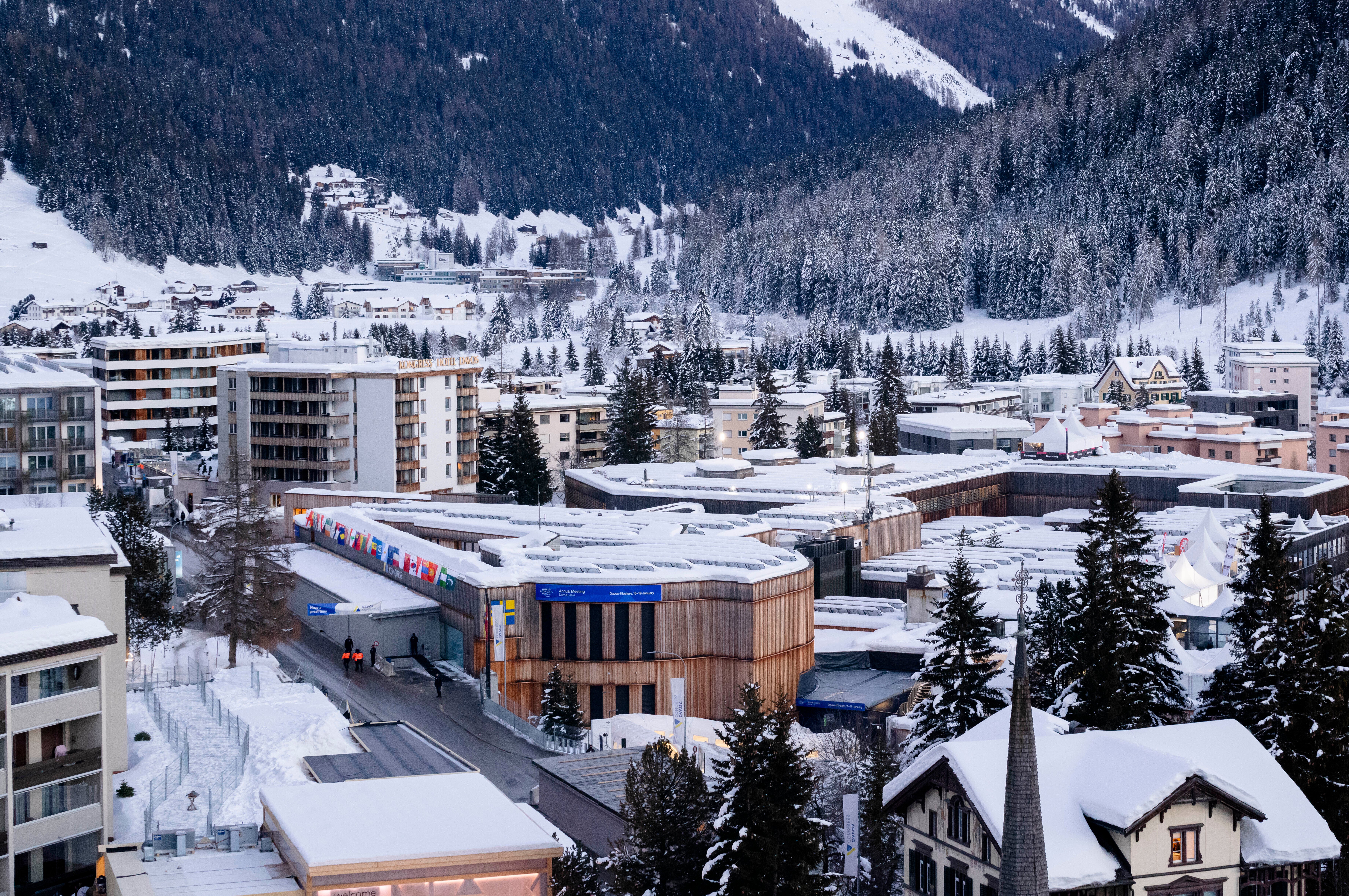The global economy is on a go-slow, but can Davos spring a surprise?
It’s easy to be cynical about the World Economic Forum when virtue signalling and crocodile tears have ruled the roost for years, writes James Moore. But a torpid global economy threatened by a series of dangerous flashpoints around the world may this year concentrate minds. Could self-interest save us?


It is terribly easy to be cynical about the annual meeting of the world’s leaders of money and business at the World Economic Forum at Davos.
There will be no shortage of people railing against it – and equally, there’ll be no shortage of virtue signalling from those in attendance. These are people who like to pretend they care about the state of the world even while they are flying on private jets and enjoying the sumptuous hospitality laid on by corporate sponsors.
However, if there were ever a time for the cynics among us to be proven wrong, one hopes it is now.
The rich world has been grappling with sky-high inflation – a dragon that hasn’t yet been truly slain. The World Bank, meanwhile, recently issued a stark warning: “As the world nears the midpoint of what was intended to be a transformative decade for development, the global economy is set to rack up a sorry record by the end of 2024 – the slowest half-decade of GDP growth in 30 years.”
This matters. People will rightly continue to highlight problems with the way the global economy works and its concentration of vast stores of wealth in the hands of a small cabal, some of whom will be in attendance at Davos. Inequality is a persistent problem and an engine of instability.
However, it is also true that economic growth has lifted hundreds of millions, even billions, out of poverty. Its absence, or its slowing, threatens to impede that progress, which took an uppercut to the jaw from the pandemic. Covid flung a huge number of escapees from poverty back into it.
That slowing presents a real problem. Global growth is projected to decline for the third year on the trot – from 2.6 per cent last year to 2.4 per cent this year. Developing economies are, meanwhile, projected to expand by just 3.9 per cent, more than a percentage point below the average of the previous 10 years. After a disappointing performance last year, low-income countries are forecast to grow by 5.5 per cent, weaker than previously expected.
If there is one thing that may concentrate minds at Davos it is the stark realities that currently confront the investment community and its wealthy clients
Investors are chiefly attracted to these “emerging” markets because they typically offer a sizeable risk premium, the prospect of getting something more than they would have enjoyed through investing in the calmer, but slower-flowing waters, of the already wealthy world. What happens if that risk premium evaporates?
Needless to say, things are further complicated by the world’s expanding coterie of flashpoints. The most recent, drawing attention to the shamefully forgotten war in Yemen, are the attacks on shipping by Houthi rebels. This could yet rekindle the problem of inflation, through interfering with supply chains, as clothing retailer Next warned in its recent trading update, or catalysing an increase in energy costs.
Overhanging all this remains the pressing problem of catastrophic climate change, and the need for a more aggressive transition away from fossil fuels. There is no greater threat and yet it risks becoming obscured by more superficially immediate problems.
The efforts towards a green transition that have been made to date are insufficient. On the other hand, those that have been made have been greatly assisted by the recognition of the very real economic threat posed by the climate crisis, by and to the wealthy, even if its greatest impact will inevitably fall on the poor in the global South.
There is now a thriving green economy, and it continues to grow and gather steam, even in the face of reductive policies, which still crop up in places like the UK and the US. The latter could, obviously, fall further into bad, old habits depending on the result of the forthcoming election.
If there is one thing that may concentrate minds at Davos it is the stark realities that currently confront the investment community and its wealthy clients. You may very well feel that the worst they may suffer is having to accept a cramping of their style, while the real victims of a slow global economy are those forced to survive on a handful of dollars a day.
But these aren’t people who are accustomed to cramping of any kind. Self-interest, and the threat to it, may yet persuade them to indulge in rather more serious discussions than we have become accustomed to. Don’t expect too much from any communique. But perhaps we can hold out hope for something better behind the scenes, which is where the real business is always done. There really is no more powerful motivating force than self-interest.






Join our commenting forum
Join thought-provoking conversations, follow other Independent readers and see their replies
Comments